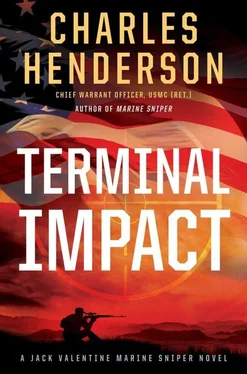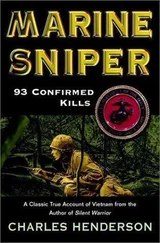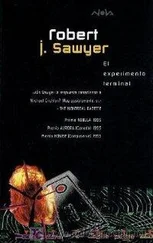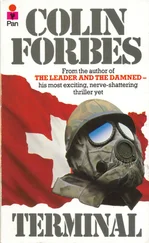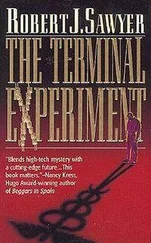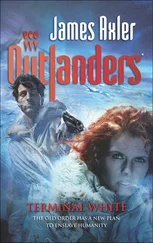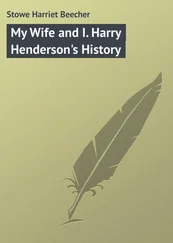Jack looked at Elmore. “Sir?”
Captain Snow took a little coffee and thought what to say, then spoke slowly.
“Staff Sergeant Gillespie in his crude and rude way told you right, son,” he began. “BUD/S is a basic school, just more of the same thing you learned at Amphib-Recon. Yes, they get into a bit more detail, but at the end of the day, you will learn little to nothing new, and it will not put points on the board for promotion. It’s virtually meaningless, given your training.
“Navy personnel who graduate BUD/S go from there to advanced training, just like we do, either as Underwater Demolition Technician, frogmen, which most of them end up doing, or move into the kind of training you’ve already accomplished, that allows them to be designated a special operator of the Sea, Air, and Land.
“I disagree with Staff Sergeant Gillespie’s assessment that a SEAL is nothing but a sailor trying to be like a Marine. Maybe a sailor trying to be like a Force Recon Marine, perhaps. But do not grow a superior attitude about them or Delta Force operators, either. They’re all good men, very well trained. But so are we. Don’t forget that.”
“So, you say no to my request?” Jack asked.
“I think you should focus your goals in a direction that will benefit our Marine Corps foremost and yourself secondly,” Snow said, and drew smiles around the table.
“Without question, Marine Corps first, sir,” Jack agreed. “Don’t get me wrong.”
“You’re ambitious, Jack, and you want to be the best at what you do.” Elmore smiled at the corporal. “Like I said when we first met, you remind me of me. Some years back. The better warrior you are, the better for our Marine Corps.”
The captain looked at the photographs, then at Jack.
“That shot you made,” he continued. “Over eight hundred meters and a running target. You shot him center mass, in the chest, one shot. That impresses me.”
“One shot, one kill.” Jack smiled. “That’s what Gunny Carlos Hathcock always taught his snipers. Right? One shot, one kill.”
“The deadliest thing on the battlefield is one well-aimed shot,” Gunny Ambrose added. “We all know Gunny Hathcock.”
“Corporal Valentine,” Captain Snow said. “Here’s what we’re going to do. Trust me.”
The “trust me” phrase drew a round of laughs.
“Seriously, son.” Elmore smiled. “Trust me. I want you with us in South America. I can use your skills. There’s an old thorn in my side in Medellín, Colombia, I want to check off my to-do list. His gunslingers killed Leroy Griffin, the sniper we called Dirty Harry. Good Marine. Outstanding sergeant. I want you to put a bullet in the motherfucker’s ear.”
The whole table erupted into hoots and fist pounding. Hearing the Christian gentleman Elmore Snow say a very, very rare motherfucker meant serious business.
“A year with us down there, you’ll pin on sergeant, and I will personally see to it that you go to Quantico for the Scout-Sniper Advanced Course and Instructor Course, too,” the captain finished, and put out his hand. “We have a deal?”
Jack thought about it and began to smile as he looked around at the Marines who surrounded him. A small team, but a family.
“Jack,” Gunny Ambrose added, “I’ve chased Elmore Snow around this planet since he was a staff sergeant, and I was a corporal. We go back a piece. Always exciting. Always rewarding.”
“Deal, sir,” Jack said, and shook Elmore Snow’s hand.
A double-spanned bridge crosses the Euphrates River in northwestern Iraq, taking Route 19 across it from the east westward where it joins Route 12 and slants northwestward to Syria. The bridge plants its longest span briefly on a small island community called Hawija Haditha, near the west bank, then it crosses a shorter span into the city of Haditha proper.
Six kilometers north, the massive earth-filled Haditha Dam, nine kilometers long and 187 meters high, impounds the mighty Euphrates’s flow from its Turkish headwaters after crossing Syria into Iraq. Its river twin, the Tigris, also begins in the Taurus Mountains, fifty kilometers east of where the Euphrates gathers itself, both collecting waters from ancient Mount Ararat and surrounding peaks. With the Tigris on the east side and the Euphrates on the west flank, defining between them ancient Mesopotamia, the basin of Noah’s great flood, the cradle of civilization and the Garden of Eden, they carry life-giving moisture and fruitful promise across desert lands southward to their Persian Gulf outlet, which empties into the Indian Ocean. No other river systems on earth have more greatly cultivated humanity’s rise and mankind’s civilization than these two.
Strategically and economically vital, the Haditha Dam stores two cubic miles of water in 193 square miles of surface area that forms the Buhayrat al-Qadisiyah reservoir. Within the nearly two-hundred-foot-high, concrete, double-decked spillway systems at the dam’s center, six Kaplan hydroelectric turbines capable of generating 660 million watts of energy turn day and night. Restored in 2004 by the United States Army Corps of Engineers, Haditha Dam sends 350 megawatts of power into Iraq’s grid, the second greatest share of electrical power for the nation. Mosul Dam in Iraq’s Kurdish region, on the Tigris River north of Baghdad, produces the greatest share, 750 million watts.
Should al-Qaeda manage to blow the dam or kill the power, it would devastate Iraq’s electrical grid. If insurgents managed to break open the dam, floodwaters would fill the Euphrates River valley, wiping out cities along its banks. Thus, Iraqi government and American forces keep a close watch on its security and structure. However, six kilometers south, in and around Haditha, jihadists, who traveled down Route 12 from Syria, gathering from places like Lebanon, Jordan, Turkey, eastern Europe and western Asia, and other conclaves that breed radical Muslim zealots, keep the city wild, woolly, and dangerous.
American forces assigned to this sector do not sleep but catnap while another warrior keeps watch. As Jack Valentine says, “It’s a target-rich environment.”
This day at Haditha Bridge’s most visible point, nearest the city from Hawija, hundreds of terrified onlookers lined Haditha’s riverbanks and streets. They watched the Jordanian-born Palestinian terrorist, Ahmad Fadeel al-Nasal al-Khalayleh, who had named himself Abu Musab al-Zarqawi, mount the roof of a wrecked taxi with its dead driver still sitting inside, his brains splattered across the windshield, and rant at the people on a bullhorn, while waving an AK-47 automatic rifle. He shook it in the air and occasionally let go rounds to punctuate his tirade, cursing the city’s noncombatant citizens.
From the Iraq war’s onset, and even before it, in the 1990s, Zarqawi led a Sunni Muslim blood-and-torture campaign, al-Tawhid wal-Jihad , against Shia people, Christians, and anyone from the West occupying any part of the Islamic world or just pissing him off in general. From birth, as a Palestinian, he hated Israel and its long-standing Judeo-Christian ally, the United States.
At the onset of the Iraq War, that jihad grew into Tanzim Qaidat al-Jihad fi Bilad al-Rafidayn , al-Qaeda in Iraq, escalating a greater, nationwide insurgency against the predominately Shia-led, post — Saddam Hussein Iraqi government and its American overseers. Today, as Zarqawi shouted threats, waving his rifle, demanding Haditha’s allegiance to his AQI army, he declared all-out war.
Haditha listened as the stockily built, average-height man with the cropped-short beard and hair, a black knit kufi on his head, and wearing a solid black shalwar kameez, with a Ninjutsu hood hanging down its back, and a green, deep-pocketed Russian ammunition vest over the top of the ninja-style terrorist outfit, proclaimed in Palestinian-accented Farsi, the language of poor Persia and the Shia, “I am Emir of al-Qaeda in the Country of Two Rivers! You will bow down to me and serve my army, or you will die!”
Читать дальше
